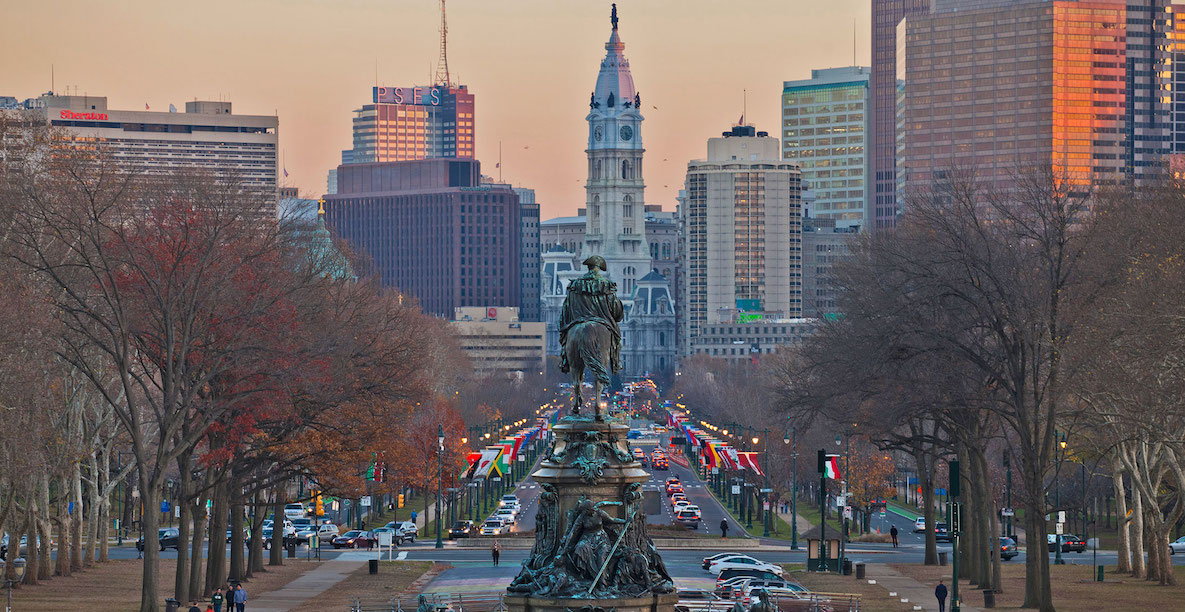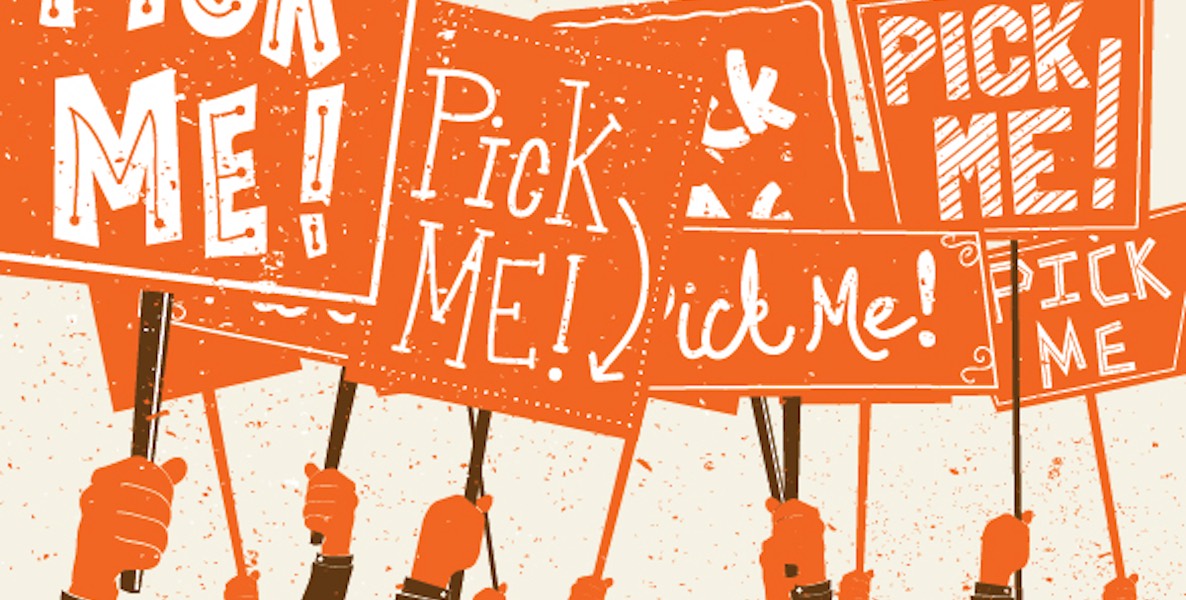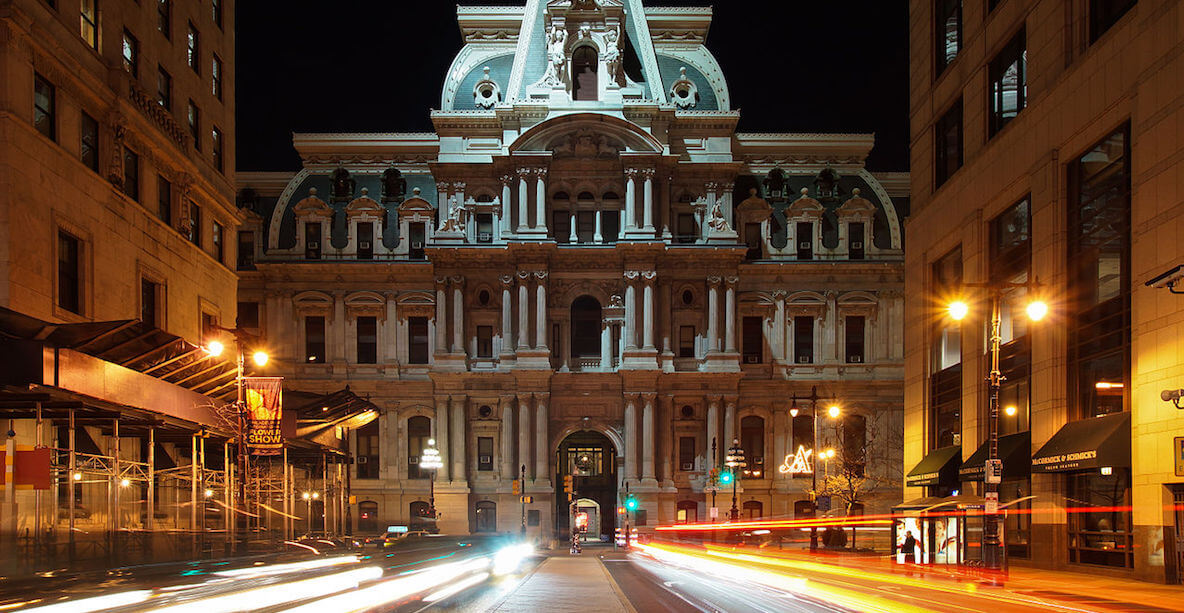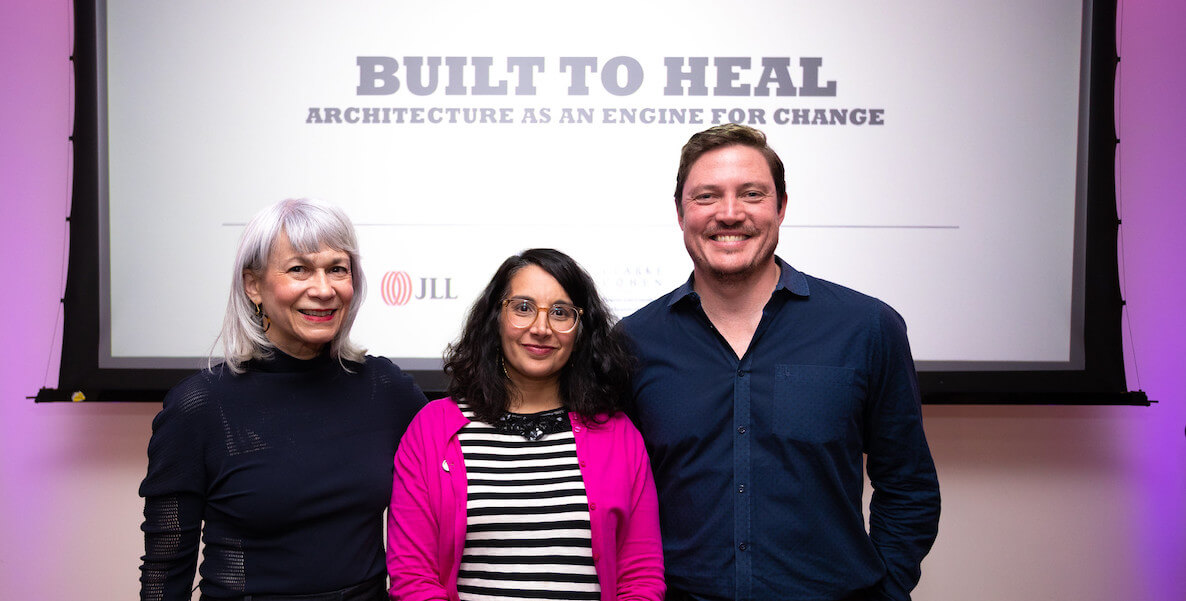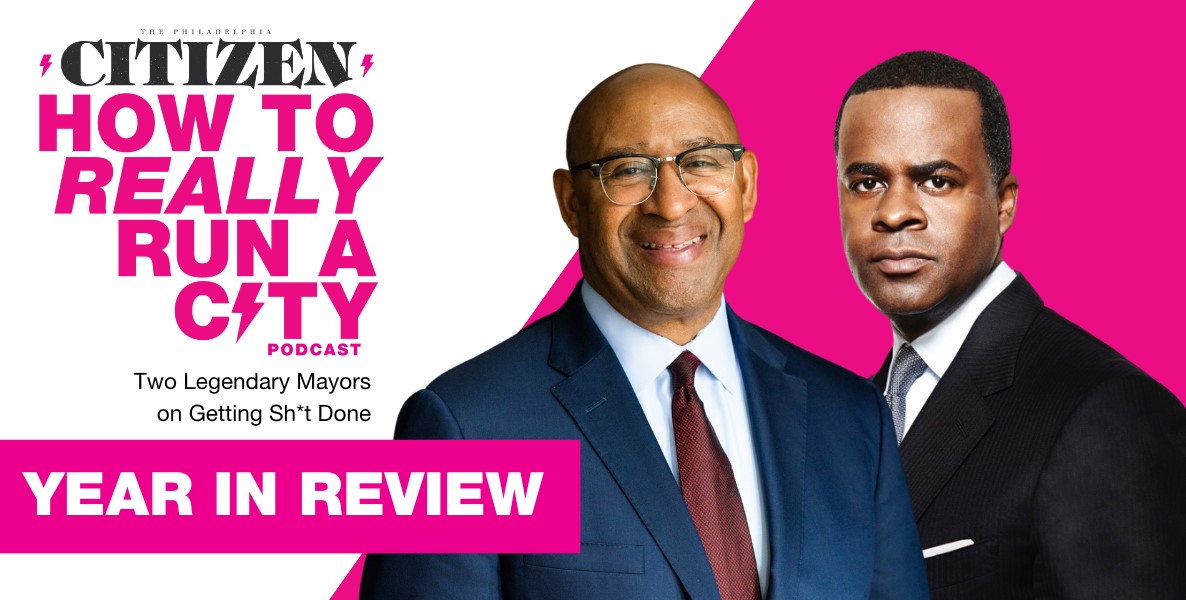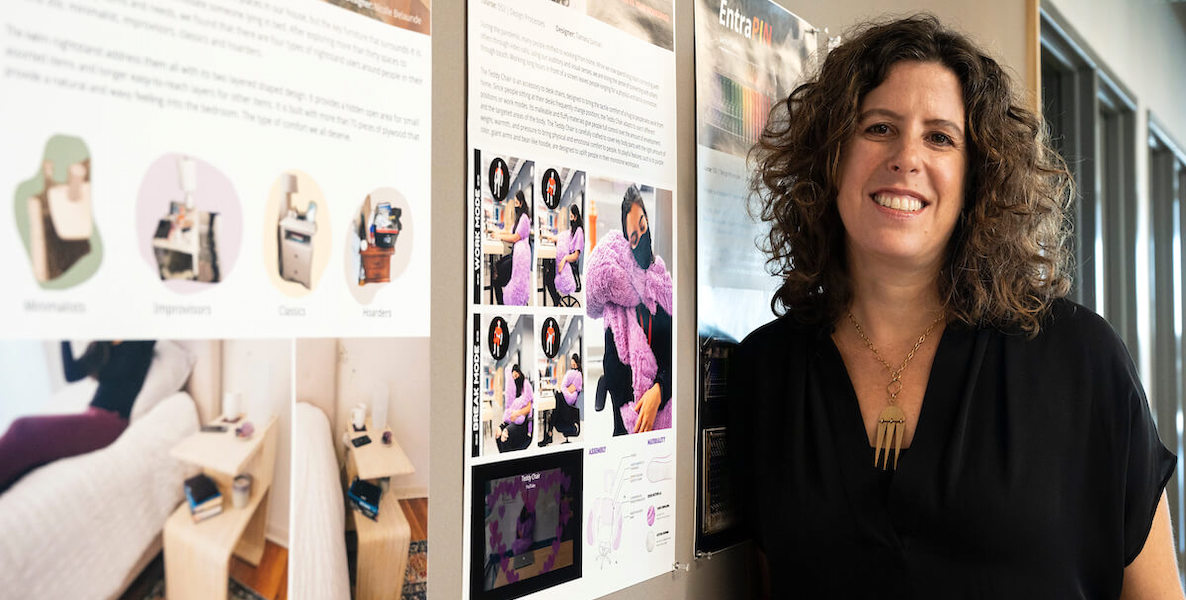In the midst of the pandemic this summer, Orlando Almonte, language access program manager in the Mayor’s Office of Immigrant Affairs, came to recognize a confluence of issues that pose a threat to our democracy:
The state’s new voting rules, and election changes due to the pandemic, are adding a layer of confusion to the 2020 presidential election. And, a huge population of Philadelphia voters don’t speak or read English proficiently so they may not understand what those changes are and how to ensure their vote counts in November.
So Almonte came up with a solution: a detailed, illustrated, consumer-tested General Election Mail-In Ballot Guide available so far in five languages, eventually 12, that can be found online, printed out, and distributed through community groups and neighbors to any Philly voter.
![]() The project involved Almonte in Immigrant Affairs, service designers in the Chief Administrative Office and the City Commissioners office — a still rare example of cooperation across city departments.
The project involved Almonte in Immigrant Affairs, service designers in the Chief Administrative Office and the City Commissioners office — a still rare example of cooperation across city departments.
And it was made possible through a $7,500 Innovation Award Almonte received from the City’s Office of Innovation Management, a two-person team in the Office of Innovation and Technology working to upend the old way of doing government business in Philly with an approach pulled from private industry. Ultimately, the goal is to create an army of public servants in Philadelphia who make “bureaucracy” an unlikely synonym for creative problem-solving.
“The goal is to create and sustain a culture of innovation within municipal government,” says Eliza Pollack, director of innovation. “We want to shift the conversation away from government is bureaucratic and inefficient, to a space where government is able to challenge the status quo and think differently about how we run programs, and use data more creatively to shift the paradigm of what government can really be.”
This is a daunting proposal in a government bureaucracy of 26,000 people, many of whom have been in their jobs for decades, known much more for doing as it always has than for upending tradition for the benefit of its constituents — the residents of Philly.
It can feel oxymoronic to use the words “innovation” and “city government” here, in large part because of leadership that seems to repel calls for change — and that allows unabated offices like Violence Prevention, for example, to spend millions with little to show for it, as the Inquirer’s Helen Ubiñas pointed out recently.
“Everyone can be innovative,” Pollack says. “It doesn’t have to come from spaces that have money, or from leadership. Everyone has the capacity to think differently about their work.”
It’s exactly that which is the target of the Innovation Management team. “The mission has always been culture change,” says Pollack. “In the big picture: helping government think better.”
People, Place Process
Formed in late 2013, the group’s work is divided into what it calls “People, Place, Process.” “People” refers to the Innovation Academy, which every year brings together 20 city workers, ideally from 20 different departments, for an eight-week program run by Jefferson University. In a crash course in the latest business school concepts, the students learn about design thinking, strategic leadership, creative brainstorming techniques, survey methods and the like.
Covid interrupted the seventh cohort this year, but Pollack says about 120 city employees have gone through the program. The first year, 2014, her group recruited participants; this year, they had 70 applicants for 19 spots.
“For the first time, we’ll have people from health, OIT, revenue, police come together to problem-solve together,” she says. “And when their time in the academy is over, they’ll have created this robust collaborative network.”
“Place” is the City’s Innovation Lab on the 16th floor of the Municipal Services Building, designed like a co-working space with white boards, movable desks and Wi-Fi, so workers from different departments can get together to brainstorm collaborations.
“Process” includes the system of calling for proposals and distributing the Innovation Awards, and also a framework for capturing ideas from employees when other opportunities to be creative arise.
A couple years ago, that opportunity came from the Bloomberg Mayor’s Challenge, which offered cities $1 million and support to solve a problem facing urban areas around the country. Philly responded with an idea hatched by two police officers, to create a Juvenile Justice Hub where youth stopped by the cops could be held safely away from adult offenders, and access social services before being sent home. The City received the Bloomberg grant and is now developing the Hub.
In the last couple of years, Pollack’s team has also launched Innovation Consulting, helping city departments and local Philly organizations develop strategic plans, or achieve specific goals.
Thus far, Pollack says she has done well over 100 workshops for about 40 clients, both inside city government — saving taxpayer money that might otherwise be spent on consultants — and outside, for groups such as Keep Philadelphia Beautiful and the Spruce Foundation. “If you have an office or a nonprofit, and have chosen to make Philadelphia your home, we offer innovation capacity support to help you succeed,” Pollack says.
Eager to Find New Solutions
There are hundreds — maybe thousands — of city employees like Almonte, or Andy Viren in Parks & Rec, eager for the opportunity to find new solutions to longstanding problems — if given the go-ahead.
Viren went through the Innovation Academy as part of its initial class in 2016, which was the first time he’d encountered relatively new concepts like design thinking, an approach to solving complex problems that involves understanding and reframing the issue in human needs terms, creatively brainstorming out-of-the-box ideas and prototyping solutions.
Viren, who oversees community and special events at Parks & Rec, has been a city employee since 2008. He says the program felt to him like a pretty dramatic shift. “To me, it marked an exciting emphasis on how the City as a whole learns and iterates and improves on the initiatives that we do,” he says. “It fosters this overall cultural shift to think innovatively, and take smaller risks that could prove really transformational.”
In 2016, for example, Viren was one of the earliest recipients of an Innovation Fund grant, for an idea he cribbed from something a Health Department employee proposed as part of the Bloomberg Cities call for proposals. Every year, the City bought seasonal plants, including some perennials like tulips, for decorative gardens at places like LOVE Park — and then ripped them out and tossed them in the compost heap.
Through Parks & Rec, Viren proposed to build a library of plants that could be propagated at the City’s own nursery and placed in manicured gardens throughout Philly. That year’s grants were $30,000 each. With that money, Parks & Rec purchased a seed fridge and expanded its nursery capabilities, so it now has hundreds of thousands of seeds that will last decades. This has allowed them to create more manicured gardens at more parks around town.
No less dramatic, to both Viren and Almonte, is the way the Innovation Academy brought them into a network with workers across city government, something they both say was a marked change. Almonte says that network has provided him with insight into how other departments operate and run their services, information that has helped him and his colleagues in Immigration Affairs solve problems better — and, ultimately, serve their constituents better.
This is a daunting proposal in a government bureaucracy of 26,000 people, many of whom have been in their jobs for decades, known much more for doing as it always has than for upending tradition for the benefit of its constituents—the residents of Philly.
That connectivity is intentional. “We’ve tried very hard to take a really inclusive, equitable, accessible focus to innovation,” Pollack says. “You see in a lot of cities and spaces that there will be an innovation team that IDs a problem, parachutes in to solve it, parachutes out and moves on. Our goal has always been to empower employees to be their own agents, so everyone feels like innovation is accessible to them.”
Everyone Can Be Innovative
The Innovation Management group started at the end of 2013, as part of Mayor Michael Nutter’s nationally recognized emphasis on open data and urban technology. Two years later, after Mayor Kenney took office, the department had what Pollack refers to as a “rocky period;” the city’s chief innovation officer at the time, Adel Ebeid, left the City and there was concern that Kenney had little interest in the innovations that were a hallmark of Nutter’s tenure. That worry has abated over the years, something perhaps borne out by the fact that Pollack’s office was spared funding cuts in Kenney’s heavy-handed post-Covid budget.
“Everyone who works for city government is hyper aware that if you’re created under one administration, who knows what will happen under another,” Pollack says. “But here we are.”
The Innovation Fund has given out more than $200,000 for employee proposals thus far. Grant money comes out of the Mayors Fund for Philadelphia, which this year gave Pollack’s team $50,000 to distribute among the winners.
![]() Pollack says the department first opened for applications early in the year, pre-Covid; in the spring, when they checked in with applicants, most said their projects would need to be on hold for the foreseeable future. (Only the Fire Department received funds in that round, for a 360-degree drone camera to help investigate the cause of fires.)
Pollack says the department first opened for applications early in the year, pre-Covid; in the spring, when they checked in with applicants, most said their projects would need to be on hold for the foreseeable future. (Only the Fire Department received funds in that round, for a 360-degree drone camera to help investigate the cause of fires.)
They issued another call for ideas focused on responding to the pandemic. A 12-member Innovation Advisory Group, made up mostly of Academy alum, reviewed 14 ideas from across city departments, and awarded $7,500 each to six of them. “It’s a little bit of a misconception that innovation has to be big and flashy and expensive,” Pollack says.
Besides Almonte, the awards went to: The Department of Prisons, for an outdoor refrigeration unit in which to store produce from the prison Orchard Project; Licenses & Inspections for an upgrade to its online customer service system; the Office of Domestic Violence Strategies, to pay for Mural Arts Philadelphia floor decals with the domestic violence hotline number in groceries and bodegas; the Department of Behavioral Health and Intellectual Disabilities for bags of art therapy supplies for trauma-exposed families and children; and the Office of Emergency Management for pop-up cooling stations and spraygrounds.
“Everyone can be innovative,” Pollack says. “It doesn’t have to come from spaces that have money, or from leadership. Everyone has the capacity to think differently about their work.”
Correction: An earlier version of this story misspelled Orlando Almonte’s last name.
![]()



